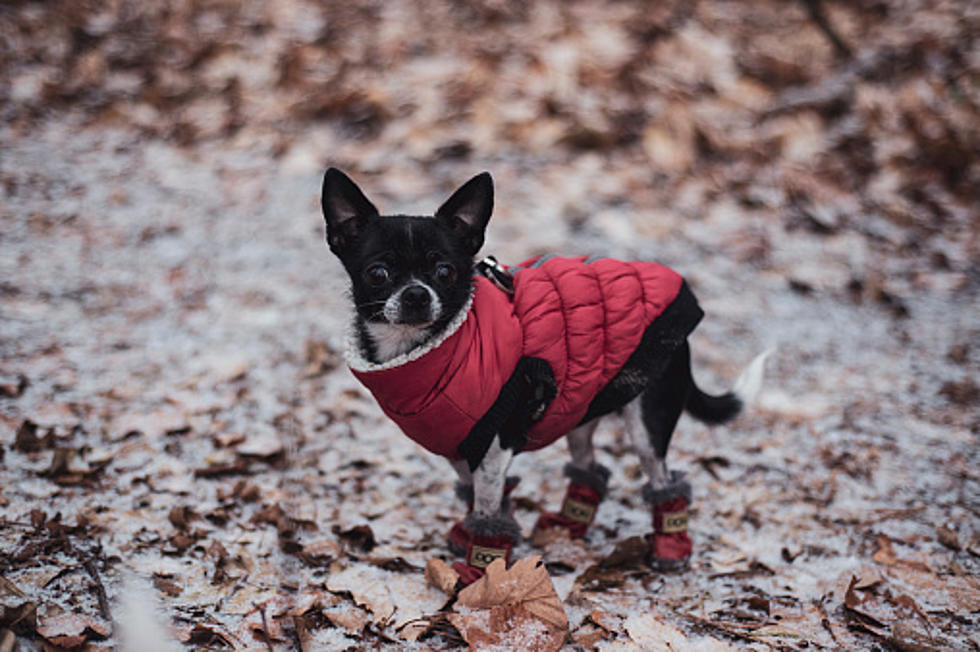
Should You Put A Coat On Your Dog In Illinois’ Frigid Weather?
If there's one thing our family dog Buddy, a happy and energetic 120 pound Weimaraner, loves even more than a handful of treats, it's going for walks. It doesn't matter what the season or the weather is, he's ready to hit the streets on less than a moment's notice--and he gets pouty and sullen if he doesn't get to go each and every day.
The reason I bring this up is because just the other night, my wife Amy and daughter Molly started discussing the idea of getting Buddy set up with a winter coat...and potentially booties of some sort.
That conversation got me wondering if Buddy, or any other dog, really needs a coat to deal with Illinois winters--or if it's just something to make him cute.
Somewhat Surprisingly (at least to me), It Turns Out That The Answer Is Yes, Some Dogs Do Need A Coat To Make It Through An Illinois Winter
That information doesn't come from some pet company that makes winter coats for dogs, because you'd assume they'd tell you that you're a terrible pet owner/pet parent if you failed to provide a warm, cozy, and inevitably expensive parka for your beloved pet.
No, the info comes from the American Kennel Club (AKC), an organization that knows a thing or two about dogs and what makes them tick. The AKC points out that not all dogs need one, as large dogs with thick, dense coats are well protected from the cold. This includes Northern breeds, like Alaskan Malamutes and Siberian Huskies, with fur coats genetically designed to keep them warm.
But other breeds of dogs do need some protection from the cold.
So, Dogs Who Pull Sleds And Hear The Word "Mush" Frequently Don't Need Winter Coats, But Let's Take A Look At Which Dogs Do
It's typically your smaller, closer to the ground, and thin-coated breeds who benefit most from a winter coat, according to the AKC:
- Small, toy, and miniature shorthaired breeds, like Chihuahuas and French Bulldogs. These small pups can’t easily generate and retain enough body heat to keep themselves warm.
- Dogs that sit low to the ground. Although breeds like Pembroke Welsh Corgis, for example, have thick coats, their bellies sit low enough to the ground to brush against snow and ice.
- Breeds that typically have long hair but are clipped or shorn, like Poodles. Grooming may alter the natural protection of their coats.
- Lean-bodied breeds with short hair, like Greyhounds and Whippets, should also be protected from the cold.
- Senior dogs are prone to conditions that may require a winter coat, such as arthritis or a weakened immune system. Heat regulation may decline with age, making even a thick-coated dog uncomfortable in the cold.
LOOK: Longest-living dog breeds
Gallery Credit: Sophia June
WOOF: These are the most popular dog breeds in America
Gallery Credit: Sabienna Bowman
More From US 104.9





![Dan + Shay’s Shay Mooney Has Lost 50 Pounds! [Pictures]](http://townsquare.media/site/204/files/2022/10/attachment-Shay-Mooney-Weight-Loss-Story.jpg?w=980&q=75)



